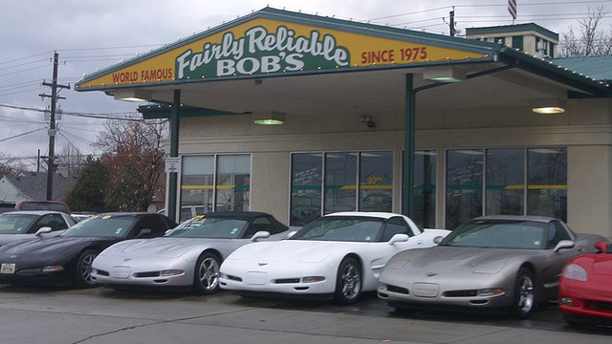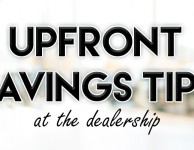Should You Buy Used Cars at “Bargain Barn” Prices?
Many used car dealers advertise exciting “sales events” that offer used cars for prices that are incredibly low – maybe even too good to be true. Many times, it is.
However, many of these sales are only possible because the dealer is trying to get rid of cars that may have hidden problems or additional costs. Before you shop for used cars for bottom dollar prices, make sure that you understand the possible pitfalls that come along with it .
Problem #1: The price aren’t actually that low
Even used cars for sales prices can be subject to price gouging on top of that misleading “super low” price. When you look closely at that sale sticker price, you may notice a list of strange markups that use unexplained acronyms. For instance, you may see an additional fee labeled as “ADM,” which simply means “additional dealer markup,” which is a term that basically means “we are charging you more for no reason.”
To avoid this kind of problem, it’s better to work with a no-haggle dealer who isn’t going to tack on any unforeseen fees. Even if their prices are a little closer to Kelly Blue Book dealership pricing, you can be confident that you actually know the final price and aren’t going to be surprised by hidden costs.
Problem #2: Undisclosed mechanical problems
If a used car is heavily “discounted”, it’s possible that there are major mechanical issues or the car is simply undesirable. Even if the dealer isn’t deliberately hiding a mechanical problem, the car is probably old enough that engine or other problems are just inevitable unless an appropriate diagnosis and inspection has taken place by the dealer before they put it up for sale.
A reputable car dealer will thoroughly inspect and approve each vehicle before putting it for sale on its lot. Many used car dealers also provide complimentary vehicle history reports so you are aware of the car’s history.
To make sure that you don’t end up with a problematic vehicle, make sure that you can obtain a complete report on the history of the car, like an AutoCheck History Report. If there are major accidents or problems reported, you might want to think twice about your purchase. It’s important to remember that a vehicle history report, whether it be from AutoCheck, CarFax or any other provider isn’t a 100% guarantee that the car is free of all issues. It is always a possibility that an accident or other records were never reported.
Problem #3: The car is on the brink of death
Used cars that a dealer is willing to put on sale are probably on their last leg. If that used car isn’t going to last for long anyway, why not spend a little more money to get a more reliable vehicle in the first place?
Sure, you can’t always look into the future and see whether or not a certain car is going to run for another decade, but you can make sure that the car has a strong history so far and doesn’t have any major problems. This is where a test drive comes into play. Test drive the car once to test out the car’s actually ability to perform properly; including accelerating, braking, steering and testing all of the components within the vehicle as well. If possible, take it for a spin a second time just to relax, enjoy the car and make sure it’s something you can see yourself in for the life of your loan.
Problem #4: The title history is unclear
When you get the title history, there should be a clear paper trail that includes the entire history of the car. If there are holes or something doesn’t match up, that should raise a red flag. Another red flag comes from vehicles that have been salvaged after being totaled.
Most used car dealers should have no problem providing you with a vehicle history report. The most popular types of reports include AutoChecks and CarFaxes. Especially with used cars, an AutoCheck Vehicle History Report is often more effective because it is better able to track and report on cars purchased from auctions, which often end up at new and used car dealerships.
Problem #5: You’ll pay more in the long run
Let’s face it – all of the problems listed mean one simple thing: you’ll have to pay more in the long run. If the prices aren’t presented accurately, you’ll have to pay more right now. When an unknown mechanical problem strikes, you’ll have to shell out the costs for repairs. If the car dies unexpectedly, you’ll be back to square one and have to buy yet another new vehicle.
Bottom line, purchase a used car from a dealership that is reputable and trusted. It’s unlikely that they received this reputation from selling cars that weren’t up to par.
What’s your best used car buying tip?






